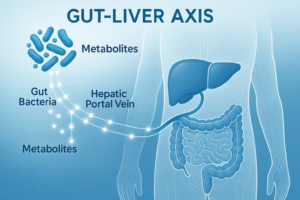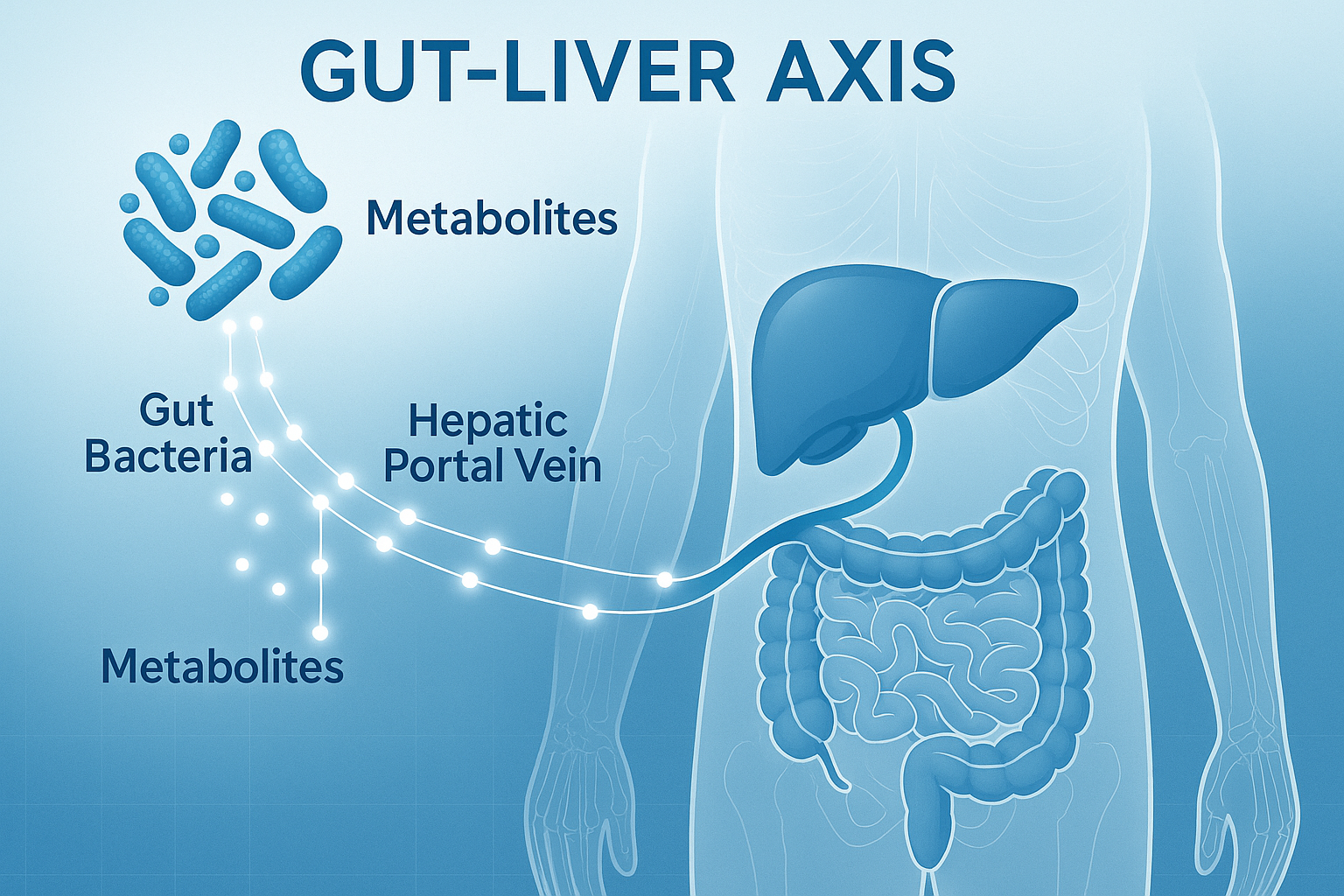A groundbreaking study from Harvard University reveals that metabolites produced by gut bacteria travel directly to the liver—where they help regulate insulin sensitivity, fat metabolism, and the development of obesity and type 2 diabetes. The findings open a promising new pathway for developing treatments aimed at metabolic disorders.
The study, published in Cell Metabolism in September 2025, tracked metabolites moving from the gut through the hepatic portal vein, the first destination for nutrients and microbial byproducts after digestion. Unlike previous research that analyzed fecal samples or peripheral blood, this approach provided an unprecedented look at the earliest signals the liver receives.
“Peripheral blood doesn’t show what reaches the liver first,” said first author Vitor Rosetto Muñoz of the University of São Paulo. “The liver is a central metabolic organ linked to many diseases.”
Understanding how metabolites influence liver health is crucial because chronic conditions like high blood pressure, insulin resistance, and inflammation are deeply connected to both gut health and liver function. (More on inflammation here: How Stress Affects Blood Pressure (and Natural Remedies That Work) — https://thehealthknowledgebase.com/blood-pressure/how-stress-affects-blood-pressure/)
Environment and Genetics Shape Which Metabolites Reach the Liver
The researchers discovered 111 metabolites enriched in the hepatic portal vein of healthy mice. However, when obesity-prone mice consumed a high-fat diet, that number dropped to 48, showing how diet drastically alters the chemical signals delivered to the liver.
This demonstrates two major forces at play:
1. Environmental factors like diet
A high-fat or highly processed diet can radically reshape the gut metabolite profile — reducing metabolites that support:
- Insulin sensitivity
- Fat metabolism
- Anti-inflammatory pathways
2. Genetic factors
Metabolite profiles differed significantly between:
- Mice resistant to metabolic syndrome
- Mice prone to obesity and diabetes
Genetics determine how the gut microbiome forms, behaves, and communicates with the liver.
As Muñoz explains:
“The environment and host genetics interact in complex ways with the gut microbiome. Different combinations of metabolites are sent to the liver and then to the rest of the body.”
This helps explain why some people maintain stable blood sugar or weight even when eating poorly, while others quickly develop metabolic issues.
A Key Metabolite Improves Insulin Sensitivity
To explore how microbiome changes affect metabolism, researchers used antibiotics to eliminate specific gut bacteria in obesity-prone mice. This increased levels of mesaconate, a metabolite linked to the Krebs cycle — the body’s central energy-production system.
In lab tests, treating liver cells with mesaconate and similar metabolites produced powerful effects:
- Improved insulin signaling
- Better regulation of genes involved in fat storage
- Increased fatty acid oxidation
- Reduced metabolic dysfunction
These findings suggest that restoring healthy metabolite flow from the gut to the liver may significantly improve insulin sensitivity and metabolic health.
New Pathways for Therapy
Muñoz and colleagues are now investigating:
- The origin of specific metabolites
- Which bacteria produce them
- How they are transported
- How they influence liver metabolic pathways
This could lead to:
- Targeted probiotics
- Prebiotic therapies
- Synthetic metabolite treatments
- Microbiome-based interventions for obesity and diabetes
Human studies have already linked some metabolites to glucose regulation, raising strong potential for clinical applications.
✅ RELATED ARTICLES
You may also like:
- Morning Habits That Help Reduce High Blood Pressure
https://thehealthknowledgebase.com/blood-pressure/morning-habits-to-reduce-blood-pressure/ - Best Natural Supplements to Lower Blood Pressure
https://thehealthknowledgebase.com/blood-pressure/best-natural-supplements-to-lower-blood-pressure/ - The Gut-Skin Axis: How Your Gut Microbiome Controls Wrinkles, Acne & Aging (The Scientific Fix) https://thehealthknowledgebase.com/gut-skin-axis/gut-skin-axis-gut-microbiome-controls-wrinkles-acne-aging/







